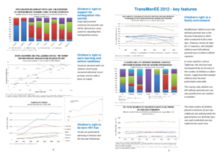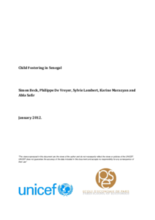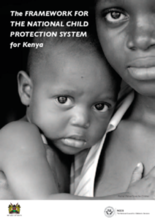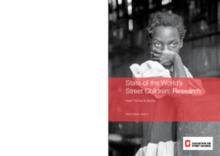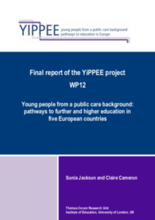Displaying 401 - 410 of 565
This report, produced by the Joint United Nations Programme on HIV/AIDS provides an update on the global AIDS epidemic as well as information on HIV prevention and treatment, HIV/AIDS as it relates to human rights and gender, HIV investments, HIV/AIDS estimates and data, and country progress indicators and data.
TransMonEE is a database that captures a vast range of data on social and economic issues relevant to the situation and wellbeing of children, adolescents and women in 28 countries of Central and Eastern Europe, Commonwealth of Independent States and the European Union. This document includes inter-country comparisons of data on several issues related to children’s care.
Using a nationally representative household survey conducted in 2006-2007 in Senegal, this study sheds light on the common practice of fostering (confiage) by examining the characteristics of households and individuals involved in fostering, the motivation for fostering and its impact on host households, sending households, and the foster child, with a focus on education, employment and marriage outcomes.
The authors of this article carried out a follow-up study of 143 young adults leaving kinship care. They assessed the young adults’ transition to adulthood with interviews and questionnaires. A small part of the sample presented serious problems of social exclusion. Seventy percent had found employment or were in higher education. The youth had frequently suffered the loss of foster carers and lack of support.
This paper explores the research evidence from England and France on the mental health of young people aging out of care and into adulthood.
This document contains the national framework for the child protection system in Kenya, developed with the intention of improving linkages between different sectors for more a more coordinated approach to protecting children.
This study commissioned by the Ministry of Gender, Children, and Community Development and financially and technically supported by UNICEF and the Better Care Network, describes the situation of children in institutional care in Malawi.
This report presents a unique Literature Review of international research studies about street children published during the decade from 2000 to 2010.
The first comparative study of young people who have been in state care as children and their post-compulsory education, was undertaken by a team of cross-national researchers.
The core aim of this programme is to contribute to the development of a platform that will support better understanding of the routes from intervention to outcomes for vulnerable children in Scotland through utilising administrative datasets and longitudinal research.


